Gaza residents left in the dark amid Palestinian power struggle
- Published
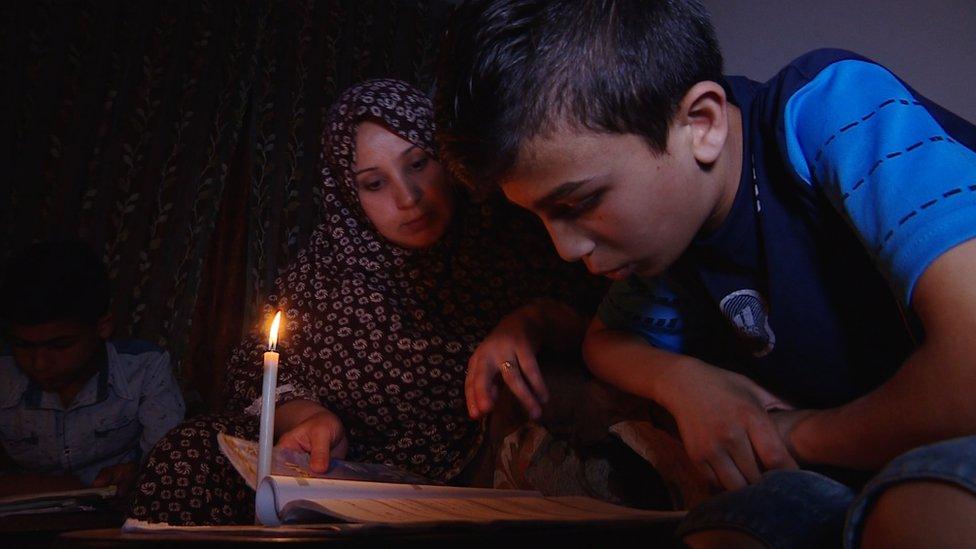
There is already no electricity in the Gaza Strip for up to 20 hours per day
By night, much of the Gaza Strip is plunged into darkness with streets lit only by the headlights of passing cars.
Inside their apartment, south of Gaza City, the children of the Abu Shaban family are studying for their end-of-year exams by candlelight.
"We have no electricity when we teach our children," says Suniya, their mother. "This problem will affect their grades a lot."
"The children are worried about the candles," she adds. "We know they're dangerous but we can't afford batteries for lights or back-up power."
"The refrigerator and most of our electrical appliances have burnt out because the power comes and goes so much. We're constantly chasing after electricity."
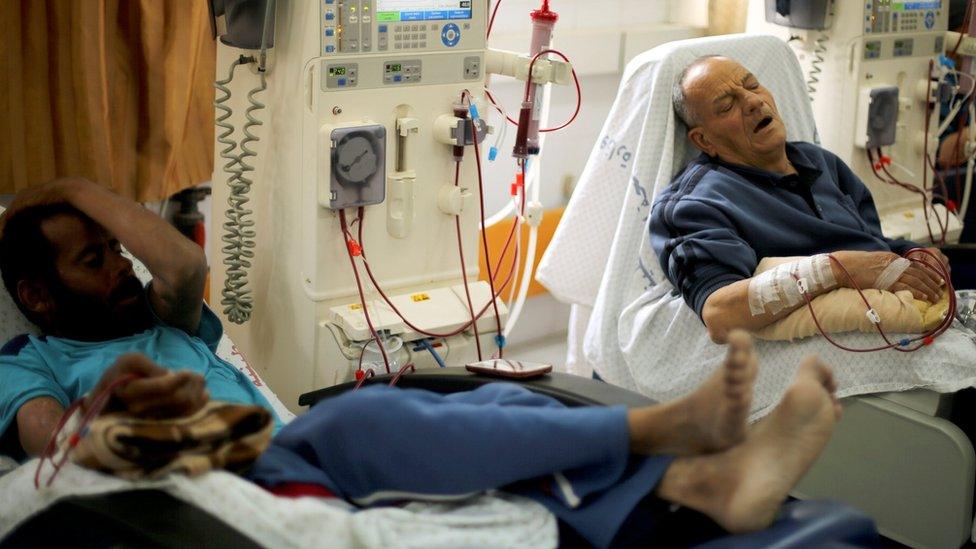
The UN has purchased emergency fuel to maintain essential services at Gaza's hospitals
Gaza has long struggled with an energy shortage, but recently the situation has got much worse. Mains electricity is switched off for 16 to 20 hours a day.
Behind the crisis is an escalating political power struggle between the Islamist group, Hamas, and the Palestinian Authority (PA), dominated by the rival Fatah movement.
Hamas seized control of Gaza almost a decade ago - a year after it won legislative elections - ousting forces loyal to President Mahmoud Abbas.
So far, all attempts at reconciliation have failed.
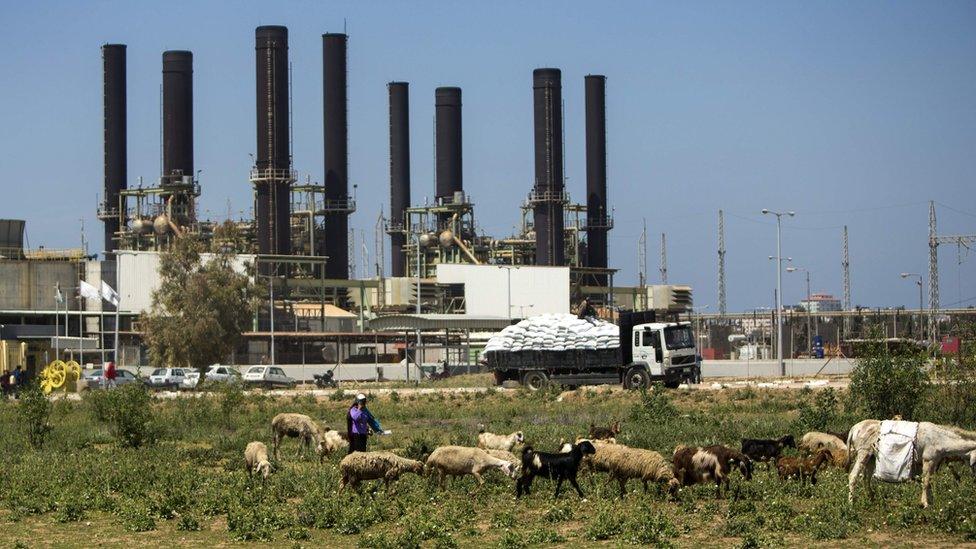
Gaza's sole power plant was forced to shut down completely on 17 April
Now, Mr Abbas's West Bank-based government appears to be piling on financial pressure as it tries to reassert its authority over the Strip.
It has cut the salaries of more than 60,000 civil servants in the impoverished territory by a third, a step it blames on decreasing foreign aid.
Gaza's only power plant, which runs on diesel, was shut down last month after the PA scrapped a tax exemption, more than doubling the price of the fuel.
The plant had been producing about 60MW of power a day, about 30% of the energy normally available.
Now, the PA says it will no longer honour any invoices for an additional 125MW of electricity supplied by Israel.
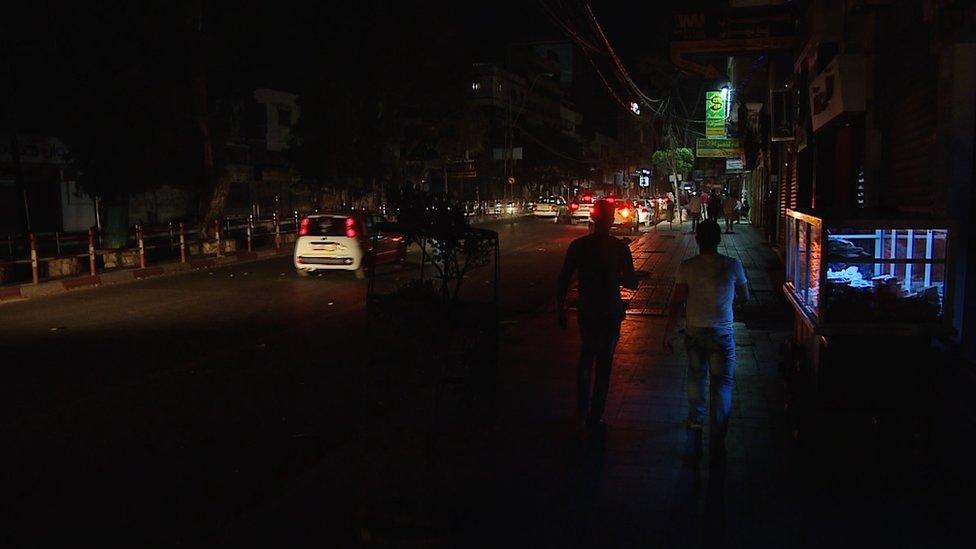
The UN has warned that basic services are grinding to a halt in Gaza
Its latest moves come amid fresh efforts by the United States to revive the moribund Middle East peace process. President Donald Trump is expected to visit Israel and the West Bank next week.
The US, European Union and Israel, among others, consider Hamas a terrorist group. Israel and Egypt tightened a blockade of Gaza after the Hamas takeover in 2007.
"The Americans and mainly the Israelis have been accusing President Abbas of being weak, [saying] he has no control over the Gaza Strip and is therefore no partner for peace," says Mkhaimar Abusada, a political science professor at al-Azhar University - Gaza.
"He wants to restore his power over Gaza, to be taken more seriously."
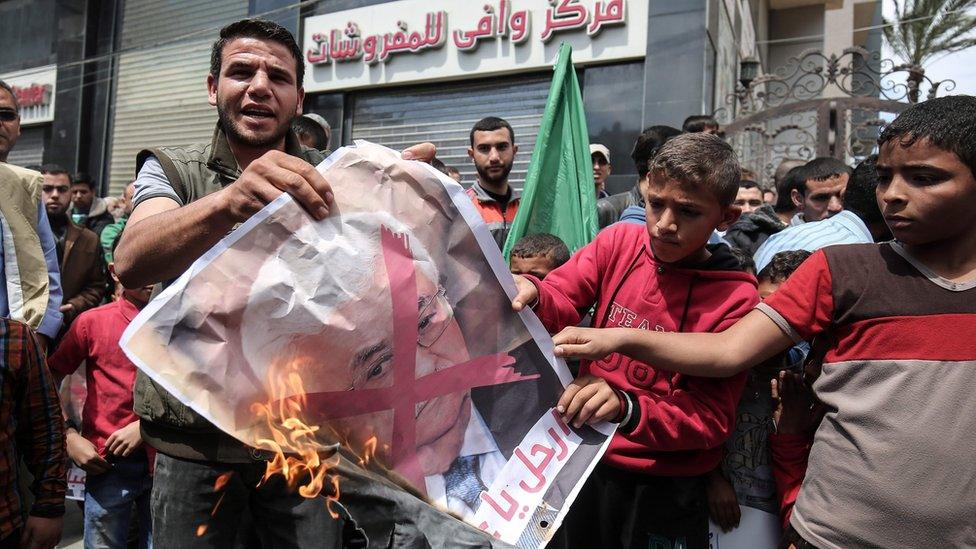
Hamas called the PA's decision to halt payments "a grave escalation and an act of madness"
The lack of energy is forcing hospitals here to cancel non-emergency surgeries.
The United Nations has donated some fuel for generators.
It is also helping desalination plants to continue running, but at just 15% of their capacity. The reductions mean water supplies are reduced.
Wastewater in Gaza is not being treated properly and pumped out to sea. That means some raw sewage is being discharged just off the coast.
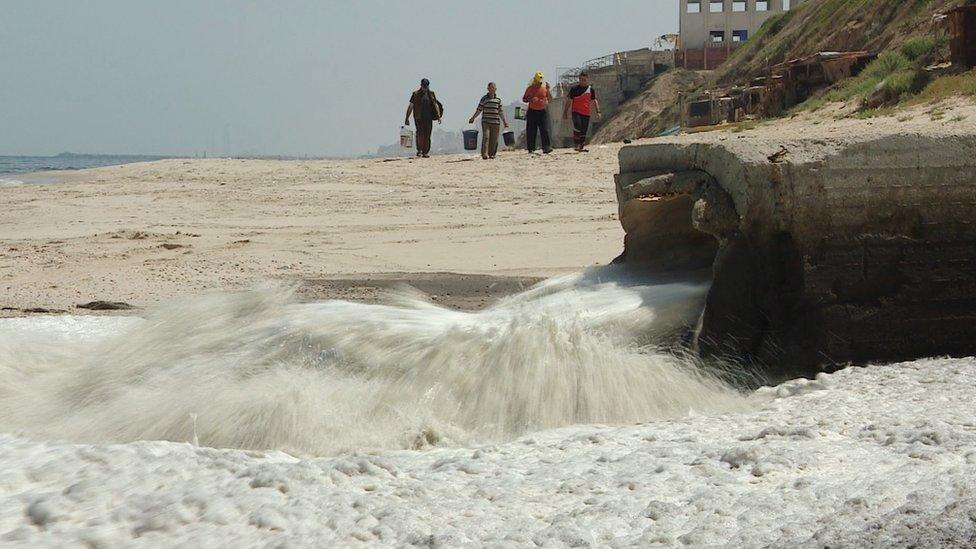
Wastewater treatment has largely halted, resulting in the discharge of sewage into the sea
"The UN can only alleviate some of the humanitarian suffering of those who are most vulnerable," says the UN Special Co-ordinator for the Middle East Peace Process, Nikolay Mladenov. "We cannot foot the bill for the electricity in Gaza."
Mr Mladenov warns the "very grave" situation could become "catastrophic" if power from Israel is stopped.
A spokesperson for Cogat, Israel's military co-ordinator for civilian activities in the Palestinian Territories, says: "In the absence of the PA, payments for electricity in Gaza can be made through the international community or private entities."
The payments amounts to $11.1m (£8.6m) a month.
When the lights go out, people turn to this Palestinian engineer for creative ways to get by
The Strip gets some power from Egypt but supplies are often disrupted because of unrest in the Sinai peninsula.
Previously, Qatar and Turkey, both major donors to Gaza, have given diesel.
Mr Mladenov says he is working hard to pass on the message to "all sides" that a political settlement is needed.
"The only reasonable political solution is in fact, to work on returning Gaza to the legitimate Palestinian Authority, the government," he adds.
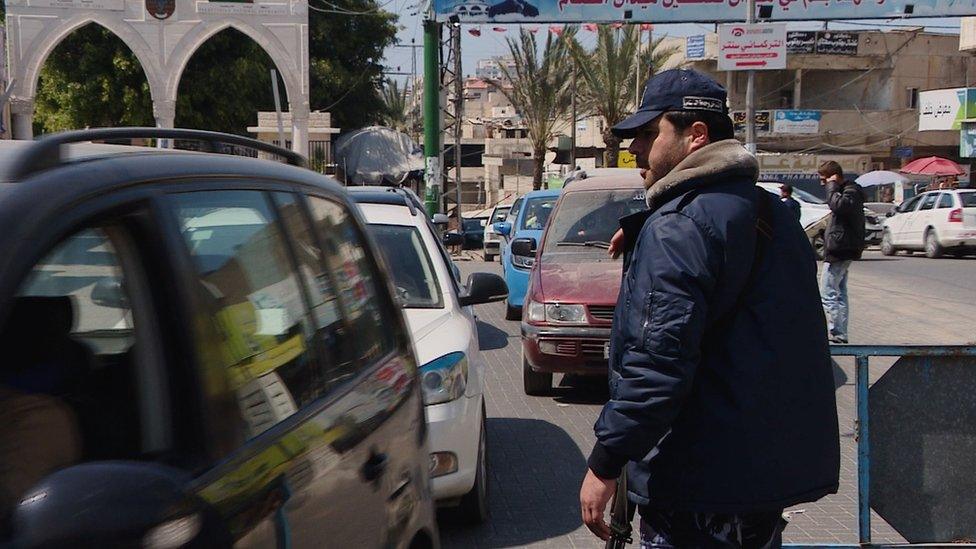
Hamas seized control of Gaza almost a decade ago
President Abbas wants Hamas to dissolve a committee it recently set up to manage affairs in Gaza.
He is pushing for the PA to take control of border crossings and government offices and help set up a unity administration that can prepare for new elections.
Meanwhile, Hamas rejects Mr Abbas's efforts to take greater control of Gaza.
Damaging rivalry between the main Palestinian factions looks set to remain a potential stumbling block for peace efforts.
Many of Gaza's almost two million residents are hoping for a short-term solution.
They point out that the holy month of Ramadan is approaching, when observant Muslims fast from dawn until sunset. Seasonal temperatures are also rising.
But for now they are being left in the dark over what happens next.